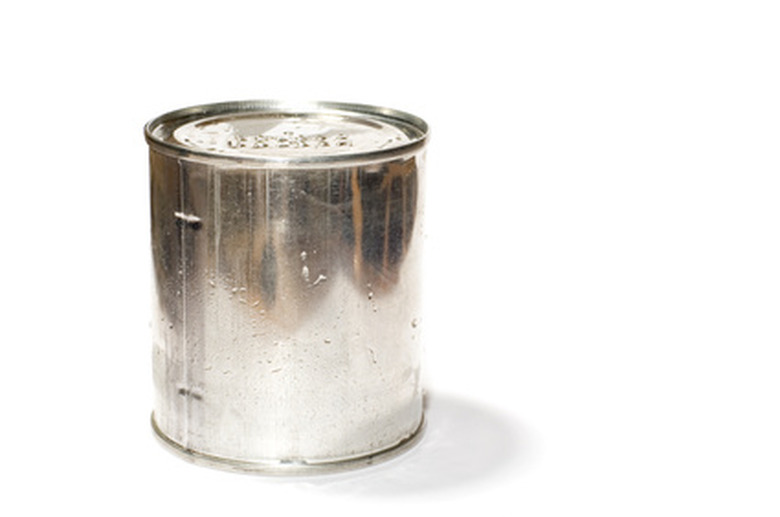Hazards Of Metal Shavings Left By Can Openers
Can openers are found in virtually all kitchens. Effective, versatile and convenient, can openers are available as various types, including manual and electric. Used primarily to open canned fruit, juices, soups and meats, these devices come in use in residential and commercial kitchens. Many users, however, don't think twice before using a can opener and are unaware of the manifest hazards associated with them.
Fire Hazards
Fire Hazards
Metal shavings that are produced when oil containers or cans are opened are commonly soaked in oil. These are a fire hazard when strewn about or disposed of carelessly. Contact with sparks and/or electrical outlets can ignite them, initiating large fires. Titanium metal shavings, in particular, are a significant fire hazard. They easily ignite in air, causing an explosion—the scale of which depends on the size and number of titanium shavings. Additionally, the burning of metal shavings left by can openers give off toxic gases that are associated with a host of health problems.
Health Hazards
Health Hazards
Metal shavings pose a significant health hazard when they are introduced in food during its preparation, which is more likely when a can opener is not adequately cleaned before use. Metal shavings can contaminate edibles with biological, physical and chemical contaminants. Common biological contaminants include disease-causing pathogenic microorganisms, including fungi, viruses, yeasts, mold and bacteria. Physical contaminants include metal, which is easily ingested and leads to a host of physical ailments. Chemical contaminants that are transferred from metal shavings to food include substances such as toxic chemicals, pesticides and cleaning agents that have come in contact with can openers.
Physical Hazards
Physical Hazards
Metal shavings may create physical hazards. Physical hazards occur when foreign contaminants, such as metal shavings, get into food and render it unfit for consumption. They also occur when tiny metal shavings become airborne and create eye hazards. Additionally, airborne, needle-sharp metal shavings can easily pierce through clothes and other surfaces. These can lodge in the skin, hair, scalp and even upholstery and become a hazard for homeowners, their pets and other occupants. Toxic and irritating shavings can further complicate matters as they can cut or scratch the skin and infect it.
References
- National Food Service Management Institute: Food Safety Factsheet
- US Food and Drug Administration: Food Safety Problems and Recommended Controls
- "Introduction to Catering"; Stephen B. Shiring, R. William Jardine and Richard J. Mills; 2001 (Pg 134)
